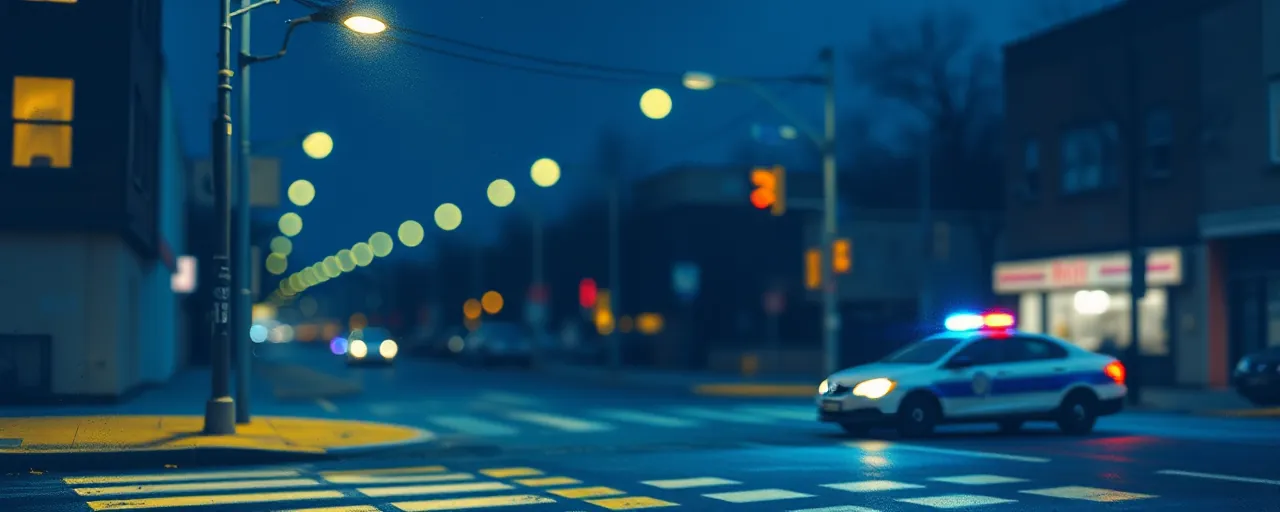A Win for Law and Order
Quindelle Addison, a 48-year-old New Orleans thug, finally got what he deserved: 118 months behind bars. On March 26, 2025, U.S. District Judge Ivan L. R. Lemelle threw the book at him for peddling methamphetamine, waving guns around, and running a drug den right under our noses. This isn’t just another courtroom yawn-fest; it’s a blazing signal that the justice system can still hit back hard against the chaos tearing through our streets. Addison’s case proves it: when law enforcement gets serious, criminals pay the price.
Here’s the raw truth: Addison didn’t just stumble into trouble. He orchestrated a methamphetamine deal with an undercover ATF agent in August 2023, selling seven grams of pure poison like it was candy. Then, his crew turned a follow-up sale into an armed robbery, leaving the agent battered after a fall from a third-floor balcony. This isn’t some petty crook; this is a calculated predator who thought he could outsmart the feds. Spoiler alert: he didn’t. And that’s exactly why we need to cheer this victory, not nitpick it.
The War on Drugs Isn’t Dead Yet
Methamphetamine isn’t a relic of the past; it’s a roaring epidemic. Nearly half of all federal drug trafficking cases in 2023 involved meth, with sentences averaging 100 months for good reason: this stuff’s pure evil, often clocking in at over 90% purity. Addison’s seven-gram sale might sound small, but it’s a drop in a tidal wave crashing over America. From California busts seizing 1,400 pounds to Mexican cartels pumping this junk across our borders, the stakes are sky-high. Locking up dealers like Addison isn’t just punishment; it’s a lifeline for communities drowning in addiction.
Don’t buy the sob stories from bleeding-heart types who say we’re too tough on these guys. They’ll argue it’s a ‘health crisis,’ not a crime wave, and push for rehab over jail. Nice try, but when you’re robbing people at gunpoint to protect your drug empire, you’ve crossed a line no therapy session can erase. The ATF’s undercover sting, backed by the FBI and local cops, shows what works: boots on the ground, not hand-holding. Historical precedent agrees; back in the ‘90s, when Mexican cartels took over from biker gangs, tough enforcement disrupted their networks. We need more of that, not less.
Guns, Drugs, and the Second Amendment
Addison wasn’t just slinging meth; he was a felon packing heat, breaking the Federal Gun Control Act with zero remorse. This is where the rubber meets the road: law-abiding gun owners get smeared daily, while creeps like him exploit loopholes. The Supreme Court’s recent ghost gun ruling proves the system can adapt, slapping serial numbers on kits to keep them out of criminal hands. Over 19,000 untraceable firearms were nabbed in 2021 alone, up from 1,600 four years earlier. That’s progress, and it’s why we can’t let Second Amendment rights get tangled up with drug-lord antics.
Meanwhile, law enforcement’s winning battles like the Oklahoma City sting, where 117 undercover gun buys led to 64 indictments and piles of seized meth. Contrast that with the mess in Los Angeles, where concealed carry permits take 18 months to process, leaving honest citizens defenseless while felons like Addison run wild. The lesson? Prioritize the bad guys, not the good ones. Addison’s 118-month sentence sends a message: wield a gun for crime, and you’ll rot in a cell, not dodge accountability.
Project Safe Neighborhoods Delivers
This takedown wasn’t luck; it was Project Safe Neighborhoods (PSN) flexing its muscle. Since 2001, PSN has slashed violent crime by targeting scum like Addison, with some cities seeing drops as high as 42%. The formula’s simple: unite federal, state, and local forces, zero in on high-risk offenders, and back it with real community trust. With $13.3 million pumped into PSN for 2024, expect more wins. Addison’s crew got smoked because agents used data-driven tactics, not guesswork, proving this program’s no paper tiger.
Skeptics might whine that PSN’s too aggressive, trampling rights in the name of safety. They’re missing the point. When an ATF agent’s climbing down a balcony to escape armed robbers, rights aren’t the issue; survival is. Historical wins like Boston’s Operation Ceasefire showed targeted deterrence works, cutting crime by double digits. PSN builds on that legacy, and Addison’s sentence is living proof: focus on the worst offenders, and everyone else breathes easier.
The Verdict That Matters
Quindelle Addison’s 118 months isn’t just a number; it’s a battle cry. Every day he’s locked up, that’s one less day he’s poisoning our kids or pointing a gun at someone’s head. This case ties together the ugly threads of meth trafficking, armed robbery, and illegal firearms, showing why we can’t flinch. The feds, from the ATF to the U.S. Attorney’s office, nailed it, and Judge Lemelle sealed the deal. America’s safer for it.
We’re not done. Cartels are still churning out meth, and felons are still grabbing guns. But victories like this light the way. Keep funding PSN, keep empowering law enforcement, and keep hammering the Quindelle Addisons of the world. That’s not a plea; it’s a demand. Because if we let up, the next balcony fall might not just injure an agent; it could bury us all.
